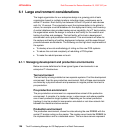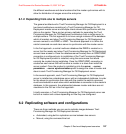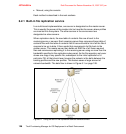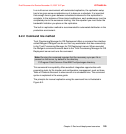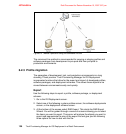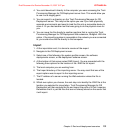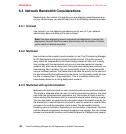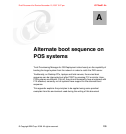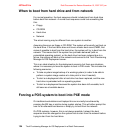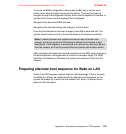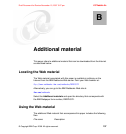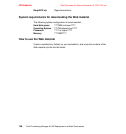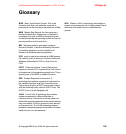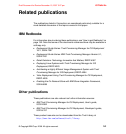4372ax01.fm Draft Document for Review November 15, 2007 3:27 pm
134 Tivoli Provisioning Manager for OS Deployment in a Retail Environment
When to boot from hard drive and from network
For normal operation, the boot sequence should include boot from hard drive
before boot from network. A normal boot sequence could look something like
this:
Floppy
CD-ROM
Hard drive
Network
The actual naming may be different from one system to another.
Assuming there are no floppy or CD-ROM, The system will normally just boot on
the hard drive. If the hard drive does not have a master boot record, MBR, that
makes it possible to boot from the hard drive, the system will try to boot from the
network. This means that if the system has just been delivered (with no
preinstalled operating system), or the hard drive has been replaced due to a
failure, the system will boot on the network and connect to the Tivoli Provisioning
Manager for OS Deployment server.
This is an ideal situation for the deployment scenario, but there are situations
where it is necessary to force the system to boot in PXE mode. This includes the
following scenarios:
To take a system image backup of a working system (in order to be able to
perform a system image restore at a later point in time if needed).
To start a re-deployment after a hard drive has been replaced, and the new
hard drive is preloaded with an operating system.
To start a re-deployment because the system has been left unusable, but it
still seen as a bootable device.
Forcing a POS system to boot into PXE mode
On traditional workstations and laptops this can normally be achieved by
pressing the F12 key or similar during system startup. This will either prompt the
user for an alternate boot device or simply try to boot from the network.
On POS systems, however, this is not always possible. Instead, the boot
sequence must be changed so the system tries to start from the network before
trying to start from the hard drive.



